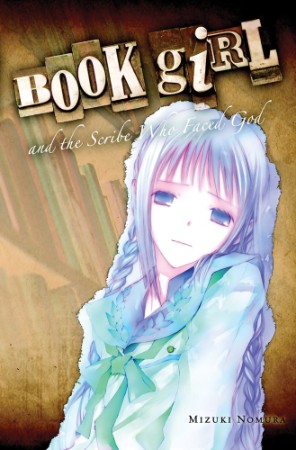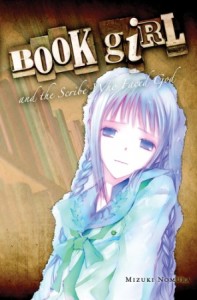By Mizuki Nomura. Released in Japan by Enterbrain. Released in North America by Yen Press.
It is not uncommon in the world of fiction – and indeed in the world of manga – for the main character to be the most difficult, the most problematic, and sometimes the least satisfying. This is particularly true when the goal of your book or series of books is to have that character achieve catharsis, to rise above mental and emotional blocks and become a better person who can move past the past that may be causing them suffering. There’s a fine line here, particularly in a series. Their faults and trauma drive the plot, but at the same time the goal is to heal them. This can lead to an unfortunate tendency to ‘forget’ past lessons learned in time for the new book to roll around, so the character always starts two steps backward from where he was before.
As you can guess, I’m talking about Konoha Inoue, the first-persona narrator and hero of these books. The last events in this series chronologically, Book Girl And The Wayfarer’s Lamentation, showed Konoha finally confronting directly the girl most associated with his past trauma – Asakura Miu – and dealing with exactly what led to that point, both his actions and those of Miu. At the end, both have moved to a point where they can start to repair their psyches. So you can imagine my frustration where, at several times during this new volumes, Konoha is still consumed by the same demons that haunted him before, particularly in regards to his writing.
It’s especially frustrating because we even see Miu, who is brought in in a short scene to attempt to smack some sense into Konoha, and we can see for ourselves that the same thing has not happened to her. Miu is changing, has grown and started to mature, even though we see that it’s hard for her, and she may still be regretting a few things. We thought this is what Konoha was doing as well. He was moving in the right direction, had started to opemn up to others, and had (we thought) made peace with Tohko, his mentor/friend, moving on to college. Of course, the main problem with this is that the series didn’t end with Book 5, and there’s one more backstory we haven’t really focused on, and that’s Tohko’s.
Konoha and Tohko have what amounts to a very codependent relationship in this book, far more than what we appeared to see in the prior books in the series. There had been small hints in the past, but nothing that quite led us to expect what was going on with Tohko and Ryuto here. It thus feels overwrought and emotionally draining, and worse, it feels like those emotions haven’t really been earned yet. This is in contrast with the scenes with Miu, and also Nanase, where you can buy into the tension and dissonance that flows between their characters and Konoha. Tohko seems to have made a leap here I wasn’t prepared for.
Speaking of Nanase, she really needs to move to another series ASAP. K-On!, or Sunshine Sketch, or something cute and fluffy that is absolutely not filled with broken people who think nothing of throwing each other to the wolves. While Ryuto’s frustration with Konoha is absolutely understandable – we feel the same way, honestly – his handling of Konoha is brutal and horrible, and made me lose all sympathy for him, mostly as he’s risking Konoha having a complete mental breakdown. Given the cliffhanger shows that he’s determined to ‘break’ Nanase, I can only look forward to that part of Vol. 8 with dread. I never had any illusions that Konoha and Nanase were going to remain a couple – his affection for her has never quite seemed like genuine romantic love – but this isn’t how I want to see them break up.
Lastly, there’s the question of what Book Girl as a series thinks of writing and authors in general. Ryuto’s mother points out that Konoha shouldn’t be an author, and Konoha through this book seems to regard writing as suffering. Except, of course, that he’s been writing short stories for Tohko the entire time. He just doesn’t think of that as coming from the same place. What he fears more than writing is notoriety – someone reading his work, holding it up to others, and judging it. Tohko notably never does that – his snacks are pretty much immediately eaten by her, and never see anyone else’s eyes. But given how screwed up Kohona is at this point, and the fact that Tohko’s mask may have been in place more than any of the other masked characters in this series, can we really resolve this in just one volume?
Well, no, that’s why there’s a Part 1 up there. This came out in Japan in 2 parts, and unlike the Haruhi 2-parter coming out in November, Yen has chosen to release it separately as two volumes. This means we have to wait till January to find out how this will all end. And despite all my complaints, I still want very much to see the resolution. After all, any series that can make me go on at this length about its faults is one that’s worthy enough to read. Even if Konoha does make me grind my teeth. A lot.

